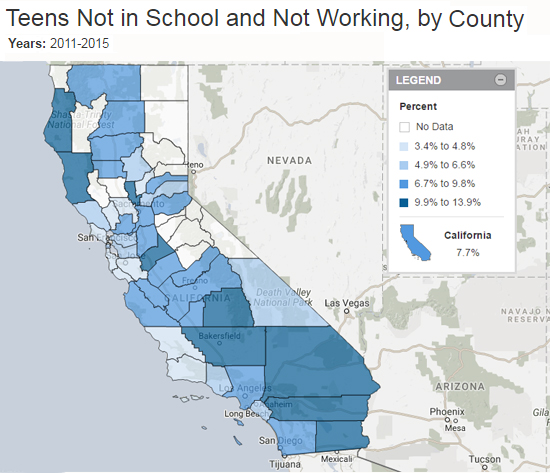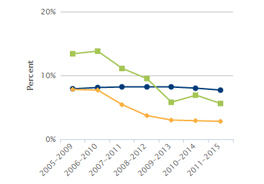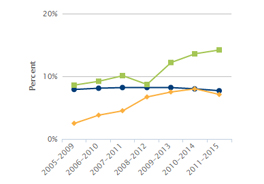|

Disconnected youth—teens who are neither enrolled in school nor working—may be more likely than their peers to experience poor health, lower incomes, and unemployment as adults. They are also more likely to become involved in illegal activity and become dependent on public aid. In 2013, disconnected youth cost U.S. taxpayers an estimated $27 billion in costs related to incarceration, public assistance, lost tax revenues, and lost earnings.
In 2011-2015, eight percent of California teens ages 16-19 were neither in school nor working. The percentage of disconnected youth in counties ranged from a low of three percent in Yolo County to a high of 14 percent in Mendocino County.
Trends in the rates of disconnected youth varied among counties, cities, school districts, and legislative districts, while the statewide trend saw little change.
Learn more »
|




